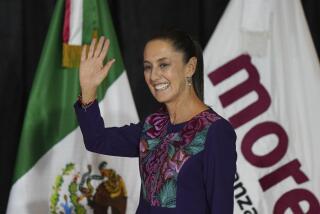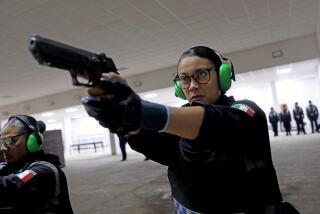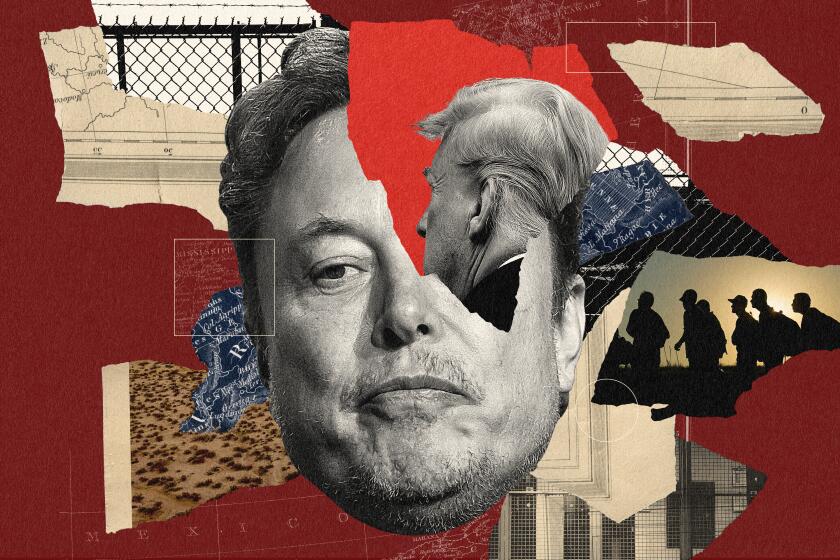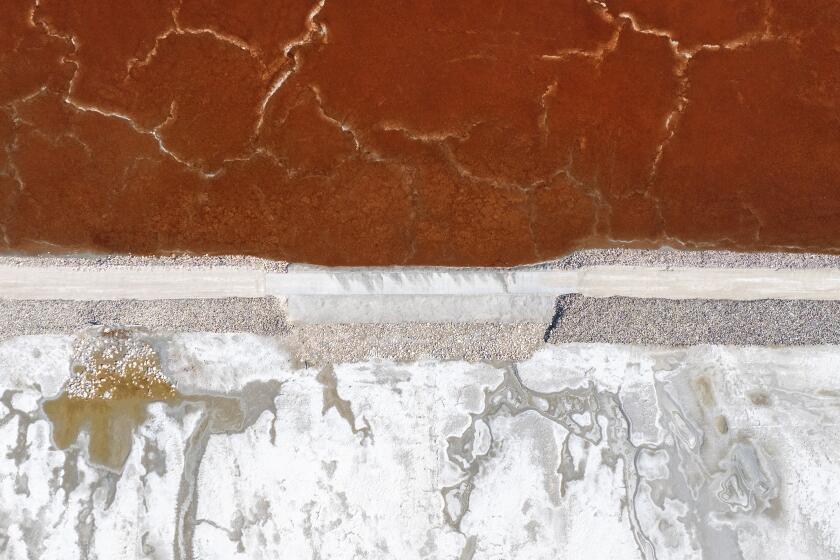Naming of Walsh by Justice Dept. Upheld by Judge
A federal judge on Friday upheld the legality of a Justice Department appointment of independent counsel Lawrence E. Walsh and ordered Lt. Col. Oliver L. North to submit handwriting samples to the federal grand jury investigating the Iran- contra case.
The ruling by Chief U.S. District Judge Aubrey E. Robinson Jr. is expected to be appealed by North’s lawyers. Under the order, North now must comply with the grand jury subpoena or face a contempt citation and a possible jail sentence.
The decision, which lifts a lingering legal barrier in the case, represents a key victory for Walsh and a major setback for North in his effort to thwart the independent counsel’s investigation. The former White House aide challenged Walsh’s appointment, by a special federal court, contending that only the executive branch has the authority to prosecute.
In his ruling, Robinson did not directly address the constitutionality of Walsh’s court appointment under provisions of the Ethics in Government Act. Instead, it held that a backup executive-branch appointment given Walsh by Atty. Gen. Edwin Meese III “was factually and legally valid and . . . appropriate authority has been vested in him and his associates.”
Challenge Remains
The decision left the constitutional challenge to independent counsels to be resolved in some future case, perhaps by appeal of anyone convicted by an outside prosecutor.
The ruling resulted from a court battle over North’s refusal to comply with the subpoena for a handwriting sample, an action based on his challenge of Walsh’s authority. Robinson had held North in contempt for that refusal, but the citation was appealed to the U.S. Circuit Court of Appeals. The appellate court stayed the contempt ruling and ordered Robinson to decide the issue of the independent counsel’s authority.
Robinson filed Friday’s order on the grand jury subpoena under seal, but a source familiar with the matter said it dealt in part with handwriting exemplars. The source would not comment on why prosecutors are seeking a sample of North’s handwriting.
Walsh Praises Order
Walsh and the Justice Department praised Robinson’s order, with Walsh saying it reassured the “continuity of our investigation.”
In ruling that Meese had authority to seek Walsh’s assistance in carrying out his duties as attorney general, Robinson cited the 1974 Supreme Court ruling rejecting a similar challenge by former President Richard M. Nixon. “The authority and independence of the Watergate special prosecutor was almost identical to that enjoyed by Mr. Walsh,” Robinson said.
North contested Meese’s appointment of Walsh by claiming that it unconstitutionally limited the power of the President and the attorney general to remove Walsh without cause.
Robinson rejected that argument by citing a federal court ruling that former acting Atty. Gen. Robert H. Bork’s firing of Watergate special prosecutor Archibald Cox was illegal because it violated a similar attorney general’s regulation providing for removal only for cause. Bork was recently nominated to the Supreme Court.
Action Called Legal
“The attorney general has voluntarily limited the discretion of the executive branch to remove officials at will,” Robinson said. “This action does not violate the constitution.”
Robinson rejected an attempt by North’s lawyers to capitalize on differences between the Justice Department’s view that Walsh’s office is part of the department and Walsh’s argument that he is outside the department.
“Mr. Walsh was aware of the particulars of his new office when he accepted it,” Robinson said. “His misconception of where the office was located within the executive branch, therefore, did not negate his express acceptance of the appointment.”
More to Read
More to Read
More to Read
Start your day right
Sign up for Essential California for news, features and recommendations from the L.A. Times and beyond in your inbox six days a week.
You may occasionally receive promotional content from the Los Angeles Times.






